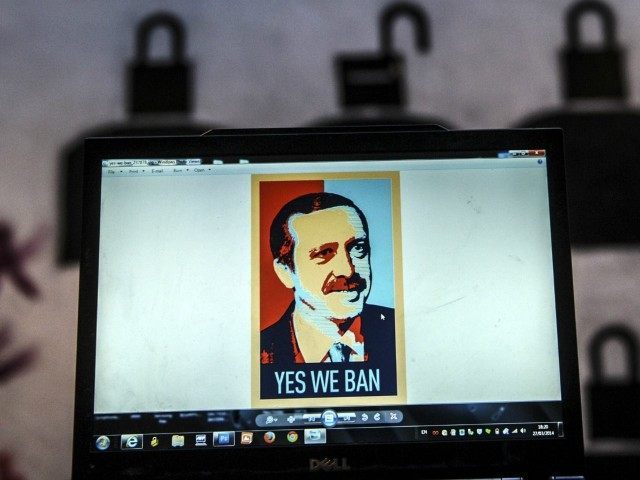Turkey’s ruling Islamist Justice and Development Party (AKP) will begin to inspect all media, including social media, to ensure it promotes “traditional family values” and not “individualism,” in the wake of an increasingly draconian string of arrests and lawsuits directed at dissidents.
Hurriyet reports that a number of government agencies — “including ministries of family and social policies, culture and tourism, youth and sports, national education and the Radio and Television Supreme Council (RTÜK), Turkey’s media watchdog” — will collaborate to censor all media. “Measures will be taken to ensure that visual, aural and social media, news, tabloids, films and similar types of productions conform to our traditional family values,” the AKP government noted in a statement.
The government claims the move is necessary as “individualism” has become one of many “grave dangers” facing traditional values in the country. It did not specify what constitutes “family values,” or note any specific examples of content that would violate this measure.
The new censorship guidelines arrive on a week in which the Turkish government’s consistent violation of free speech has caught international attention. The NGO Freedom House issued a statement Wednesday condemning the Turkish government as one of 72 around the world that has contracted the definition of free speech significantly. “Turkey received a downward trend arrow due to renewed violence between the government and Kurdish militants, terrorist attacks by the Islamic State [in Iraq and the Levant or ISIL] group, and intense harassment of opposition members and media outlets by the government and its supporters ahead of November parliamentary elections,” according to Freedom House.
The government of President Recep Tayyip Erdogan has demonstrated little hesitation in using the power of the courts to punish political dissenters, or even reporters who cover stories that do not show the AKP in a positive light. This week, a Turkish court announced two editors of the newspaper Cumhuriyet — editor-in-chief Can Dundar and Ankara bureau head Erdem Gul — will face life imprisonment for publishing a story on arms shipments to Syria.
In May 2015, Cumhuriyet published a story reporting that Turkish security forces had stopped a truck convoy carrying weapons shipments en route to Syria, indicating the government had begun to arm Syrian rebels through its intelligence agency, the MIT, and without public knowledge.
In early 2015, police raided the offices of Cumhuriyet and prevented its distribution after the newspaper announced it would publish a Turkish mini insert of the French satirical magazine Charlie Hebdo, which had recently suffered a massacre at the hands of Islamist terrorists. The insert included illustrations of Muhammad, which are considered haram.
Erdogan has also targeted individuals and media organizations that have criticized him personally. Insulting the president is a crime in Turkey, and Erdogan has used the law extensively to punish it. This week, a Turkish court opened an investigation on CNN’s Turkish wing because of reports that they covered the remarks of a Turkish opposition leader, who had called Erdogan a “sham dictator.” Among CNN’s potential violations was to publish the word “dictator” in a news ticker.
Erdogan personally sued Kemal Kılıçdaroğlu, the leader of the Turkish Republican People’s Party (CHP), who used those words against him. Erdogan is demanding Kılıçdaroğlu pay up to 100,000 Turkish lira ($33,086) in fines.
In 2014, Erdogan dismissed allegations that his government had begun curbing freedom of expression nationally. “Nowhere in the world is the press freer than it is in Turkey. I’m very sure of myself when I say this,” he said, adding, “The press is so free in Turkey that one can make insults, slanders, defamation, racism and commit hate crimes that are not tolerated even in democratic countries.”

COMMENTS
Please let us know if you're having issues with commenting.